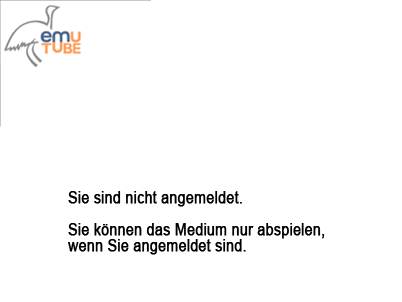The Tudor Theatre The Tudor Theatre Some basic information about the Tudor theatre • The Tudors certainly didn’t invent acting – The Ancient Greeks and the Romans built theatres many years before the Tudors did – but they loved to watch plays and they helped to shape today’s plays and theatres.• In the summer months, groups of actors from London would take a show on the road. They would load up wagons and carts with all of their costumes, scenery, props and a stage, and perform plays in town squares and inn-yards. The audience was sometimes charged a fee to watch the play, or a hat was passed around to collect money (a bit like buskers do today). Inns really liked having their inn-yard turned into a temporary theatre because they could sell food and drink to the audience. Some inns became full-time thea-tres with plays being performed on a regular basis.• In Tudor times all of the actors were male. Female roles were played by boy’s whose voices had yet to break.• In 1572, a law was passed in Parliament making it compulsory for all actors to have an acting licence and a lord as their supporter. As a result of this law, several acting groups (or companies) were set up. James Burbage started a a company called The Chamberlain’s Men (supported by the Lord Chamber-lain). Other groups included: The Lord Admiral’s Men, the Queen’s Men (supported by Elizabeth I herself), Lord Strange’s Men Acting Troupe and the Earl of Leicester’s Men.• In 1576, James Burbage (an actor who was formerly a carpenter) built one of the first theatres in London. It was constructed north of London, beyond the city walls, and was called the Theatre.• The rich boys who attended schools like St Paul’s and Chapel Royal set up their own acting group called the Paul’s Children. They performed about once a week on a stage near the old St Paul’s Cathedral, and regularly acted for Elizabeth I. Follow this short link QR-code to visit the Globe theatre as it is today. Your guide wraps up some basic information about Elizabethan theatre and offers exclusive impressions from the theatre itself. https://kurzelinks.de5lal https://kurzelinks.deoh9f Theatrum mundi: The world as a stage Be active and follow this short Biography of Shakespeare. Can you answer all questions to continue the video? • Philip Henslowe, a businessman who had made money by putting on plays and running bear-baiting contests, built the Rose theatre in 1587 in South-wark, south of the Thames.The Globe theatre was built in Southwark by James Burbage’s sons – they did this by taking down the Theatre and re-using the materials.• Other famous Elizabethan theatres were the Swan and the Fortune.• Elizabethan theatres were quite a bit different to today’s modern theatres. They were mostly open air and looked like an O from above. The stage came out into the centre of the O and the audience stood all around it in an area called the yard or the pit. The rich could sit in covered galleries around the edges of the yard. A building was built to the back of the stage. This was brightly painted and used by the actors in scenes of the play they were per-forming.• When the flag on top a theatre was flying, it meant that there was going to be a performance on that day. A trumpet blast let people know that the show was about to start.• Both rich and poor people went to the theatres. The rich could afford to buy seats in the gallery, whereas the poor had to make do with standing by the stage.• William Shakespeare was the most famous of the Elizabethan playwrights. He was born in Stratford and moved to London, joining James Burbage’s act-ing company. He went on to write over 30 plays, including Romeo and Juli-et, Hamlet and Macbeth. • Christopher Marlowe was another popular Tudor playwright. Sie benötigen einen emuTUBE-Zugang für Ihre Schüler? Kein Problem. Wählen Sie aus den untenstehenden Möglichkeiten die gewünschte Funktion aus. Nach „Freigabe erstellen“ wird ein Zugangscode/Zugangslink erzeugt. Bitte teilen Sie diesen Ihren Schülern mit. Die Schüler müssen den Zugangscode auf der Startseite von emuTUBE eingegeben oder den Link in der Adressleiste des Browsers eintragen. Die Downloadfunktion steht aus rechtlichen Gründen für Lernende nicht zur Verfügung. Nach Ablauf des gewählten Zeitfensters verfällt der Zugangscode bzw der Zugangslink.
Freigabe für den Film "The Tudor Theatre" erstellen Sie dürfen das Medium (Film/Audio) und die dazugehörigen Materialien:
nur im Unterricht/unterrichtlichen Kontext einsetzen,
herunterladen, auch abschnittsweise (Clip), abspeichern,
be- und verarbeiten sowie mit anderen Materialien nur zu Übungszwecken zusammenstellen ohne Veröffentlichung außerhalb des Klassenverbandes,
den Schülern ihrer Klasse über emuEI (Freigabe)
es innerhalb der Lizenzzeit einsetzen.
Alles was nicht ausdrücklich erlaubt ist, ist nicht gestattet. Bei Nachfragen nehmen Sie bitte Kontakt zu Frau
Birgit Kersten auf.
Verfügbare Materialien zum Download Keine Downloads vorhanden!
Clips für den Film "The Tudor Theatre"  Hier bin ich:
Hier bin ich:








